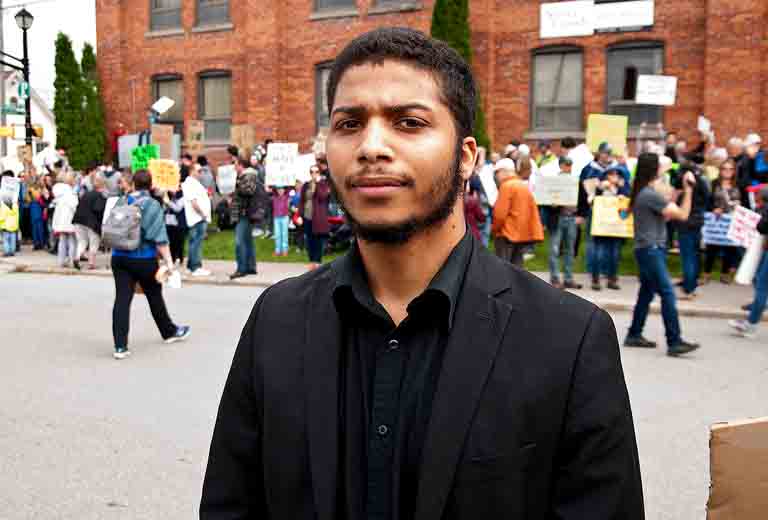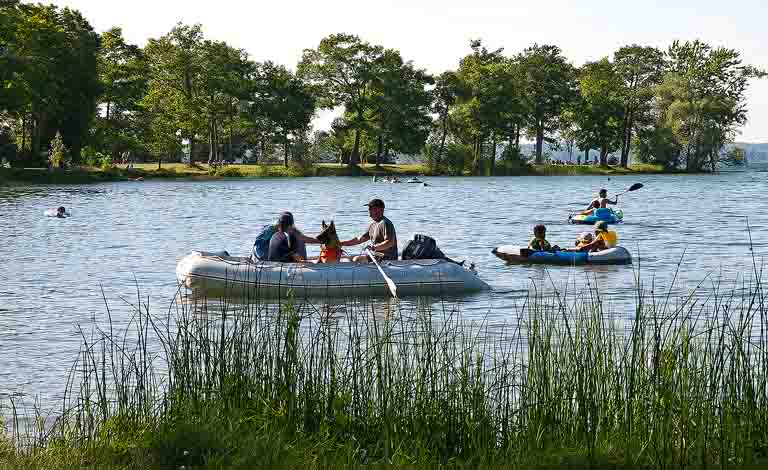Ditch Despair, Have Hope
By Victoria Stroh – Special to SUNonline/Orillia
Every day, we have an opportunity to connect with the natural world. Sometimes our connections consist of hiking through Scout Valley, boating on Lake Simcoe, or camping at Bass Lake. Sometimes our connection is minimal, like when we run through a snowstorm to get to the car. It’s important to be aware the environment surrounding us and we engage with is gravely at risk due to climate change effects. Dr. Ellen Field, adjunct professor at Lakehead University, finds there is a gap between what the majority of Canadians think they know about climate change and their actual understanding.

Orillia has incredible initiatives and advocates for our surroundings. Last year, a local student, Daniel Tucker, shared his passion for our community by rallying support to host a climate strike and ultimately to demand the city to consider becoming carbon neutral. Orillia Mayor Steve Clarke caught wind of the movement and wanted to show his support by sharing a powerful message during the protest. He stated that Orillia “can’t stop here” and we’re “in it together.” The level of dedication towards acknowledging climate change and working toward building a sustainable future has inspired the community to become mindful and recognize we need to become part of the solution.
The role of hope is stronger than fear.
Field and her colleagues acknowledge stress comes embarking on the journey to educate oneself on the environment’s wellbeing. “The psychological impacts of hearing about environmental degradation and social problems related to climate change in the media, which predominantly uses disaster-framing, can be severe, especially for young learners,” she said.
However, it can be taxing to learn about climate change. Field elaborates saying, “taking an active, education-driven approach to the problem improves understanding and mitigates anxiety and stress caused by ecological grief.” Elin Kelsey validates that pointing out,” while our emotions are indeed contagious and we may be experiencing an under-representation of hope, our desire and longing for a better future is the most effective way to facilitate this hope and champion for change.”
In order to come together, we must check our emotions somewhere between fearful and optimistic. What lies in the middle, is hope. Like all meaningful relationships, we must begin with selfcare. Environmental selfcare goes beyond reducing, reusing and recycling; it delves deep into the meaning behind each of our decisions and our lifestyles. Focusing on what’s important in your life, being creative and connecting with like-minded people can help you live a life that is positive, that you value and are grateful for, which will in turn enhance intrinsic hopefulness.
Our daily decisions reflect who we are and how we interact with our community. Making decisions you stand behind and stand up for is a way to be your authentic self and gain a sense of purpose. We can showcase our hope for a better future in simple ways like shopping at places representing our moral standards. Choosing to shop at places like the Refillery District in downtown Orillia not only supports the local business, but also supports the shop’s mission to ‘replace habits around human necessities to ensure the health of our planet and each other.’ You may choose to order dinner from Shine Plant Based Kitchen, our local plant-based eatery because it is a small locally owned business and because their mission to provide the community with plant-based options and source local ingredients is something you respect.
There is power in leading by example. Family members, children, friends, coworkers, and community members may be enlightened by hopeful leadership. If we continue to take action on the pillars of care, kindness, and sustainability, others will begin to follow.

Participating in meaningful activities in our community puts an emphasis on living life with a purpose. Valuing and visiting Couchiching Beach Park, Couchiching Conservancy sites, Lake Simcoe, Bass Lake Provincial Park, Scout Valley, Tudhope Park, Mnjikaning Fish Weirs and other places creates a meaningful connection between yourself and the environment. Creating this connection with our children can provide them with the opportunity to adopt these values in their own lives.
Encourage others to actively engage with our community with a hopeful vision for the future. Honouring your values and practicing environmental selfcare contributes to your own self efficacy and also contributes to the community’s policymaking and goal-setting initiatives. Allow your daily decisions to reflect your love for the environment and the life you live.
(Photos by Swartz – SUNonline/Orillia, and Supplied)
Victoria Stroh is a Lakehead University student and volunteers with Sustainable Orillia.




